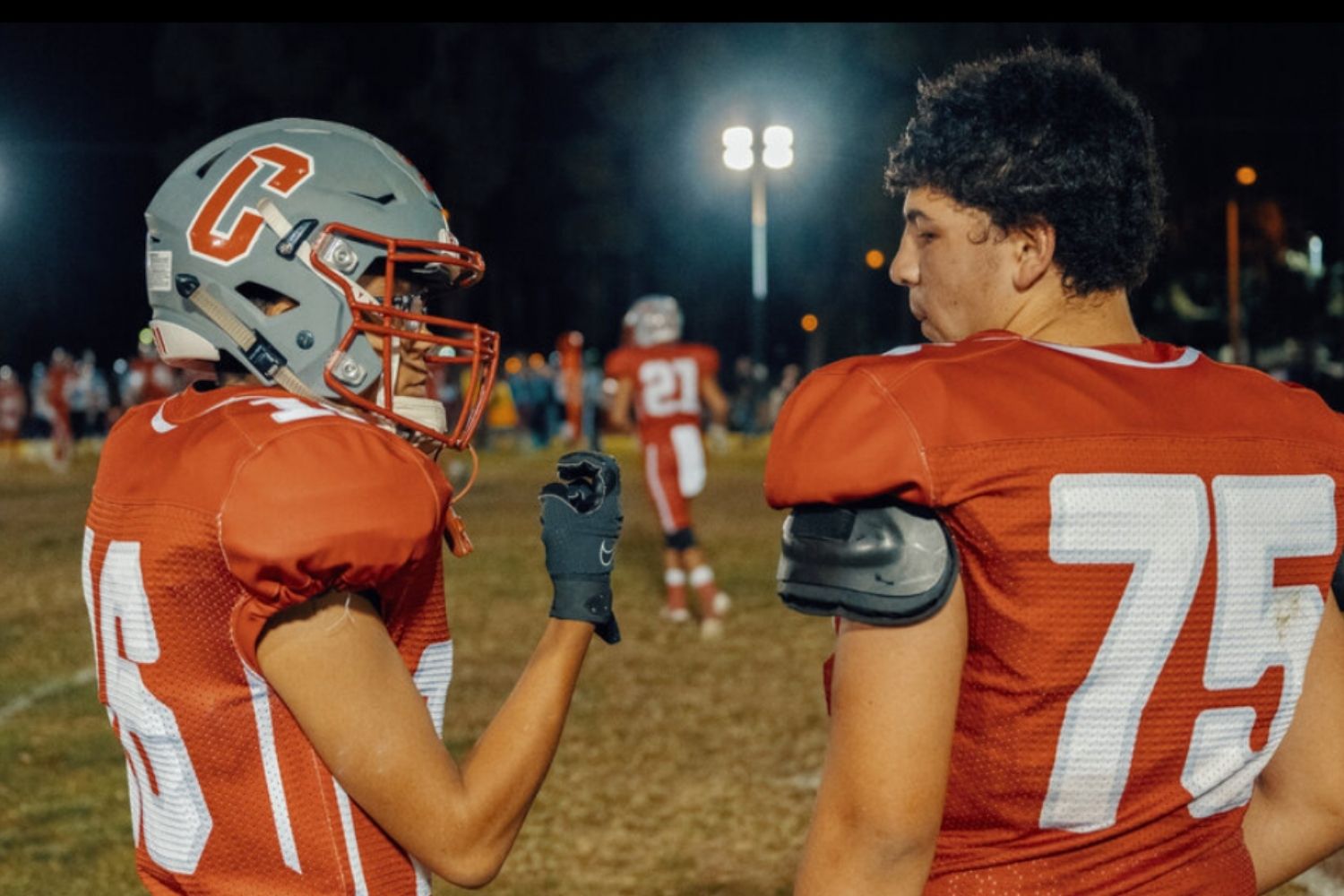For much of this year, the news cycle has been devoid of good stories, the kind that upon reading, leave you feeling more inspired, with faith restored in humanity and the world at large. But before you go shunning the news completely, consider this athletic program at the California School for the Deaf, Riverside. It’s not just an underdog story of how one team came to defy the odds and triumph in the sporting arena, but rather about how the players came to embrace their differences and find joy in community.
For years, the varsity football team, the Cubs, has suffered its share of humiliations and harassment. For seven straight seasons the team has lost. For rival opponents, a fixture with the Cubs was to guarantee yourself an easy victory. Now, the Cubs are undefeated and what’s more, they’re also the highest-ranked team in their Southern California division. Through 11 games, the Cubs haven’t just beaten their opponents but dominated them, with performances that are testament to their strength and athletic prowess.
As Thomas Fuller writes in the New York Times, the team is led by the school’s physical education teacher, Keith Adams, who is also a deaf man with two deaf sons on the team. Years prior, the Cubs were mocked and tormented, with a hearing coach for the girls’ basketball team overhearing opponents discuss how embarrassing it would be to lose to a deaf team. Taking it all in stride, the Cubs have emerged stronger than ever, stunning their opponents with a system of coded hand signals that prove fast and efficient.
The team is now two games away from capturing the division championship for the first time in the school’s 68-year history, but as Coach Adams told the publication, they already feel like winners. “I sometimes still can’t believe how well we played this year,” he said. “I knew we were very good, but never in my dreams did I think we would dominate every game.”
As the NYT reports: “Football is a richly audible experience: the crashing of helmets, the crunch of a tackle, teammates shouting from the sidelines and the roaring approval of the crowd. Friday night games at the Riverside campus are not totally silent, but they are not boisterous either. The generators that power the lights hum and the crowd reacts with scattered claps. But there is no public address system, no play-by-play commentator to call out players’ names after a touchdown pass or run-stuffing tackle.”
The school has employed a sign-language interpreter that serves as an intermediary between the Cubs’ coaching staff and the game officials. For instance, officials need to know to wave their hands when they blow the whistle to ensure play can be stopped.
“The success of the team has undermined the longstanding stereotype that deafness is something to overcome in football,” writes Thomas Fuller. The team undergo rigorous training and conditioning and the players are close-knit. Where other teams need huddles and time with coaching staff, the Cubs don’t waste any time, communicating with each other instead through a flurry of hand movements between each play. According to the coaches, deaf players also have heightened visual senses that make them more alert to movement, as well as a more acute sense of where their opponents are positioned on the field.
For many though, the success goes beyond the sporting field. Rather, the Cubs serve as testament to the fact that deaf children are at their best and flourish when in an all-deaf environment. In mainstream settings, deaf children often experience isolation and are left to combat issues like loneliness and alienation. In an all-deaf environment, students flourish.
















